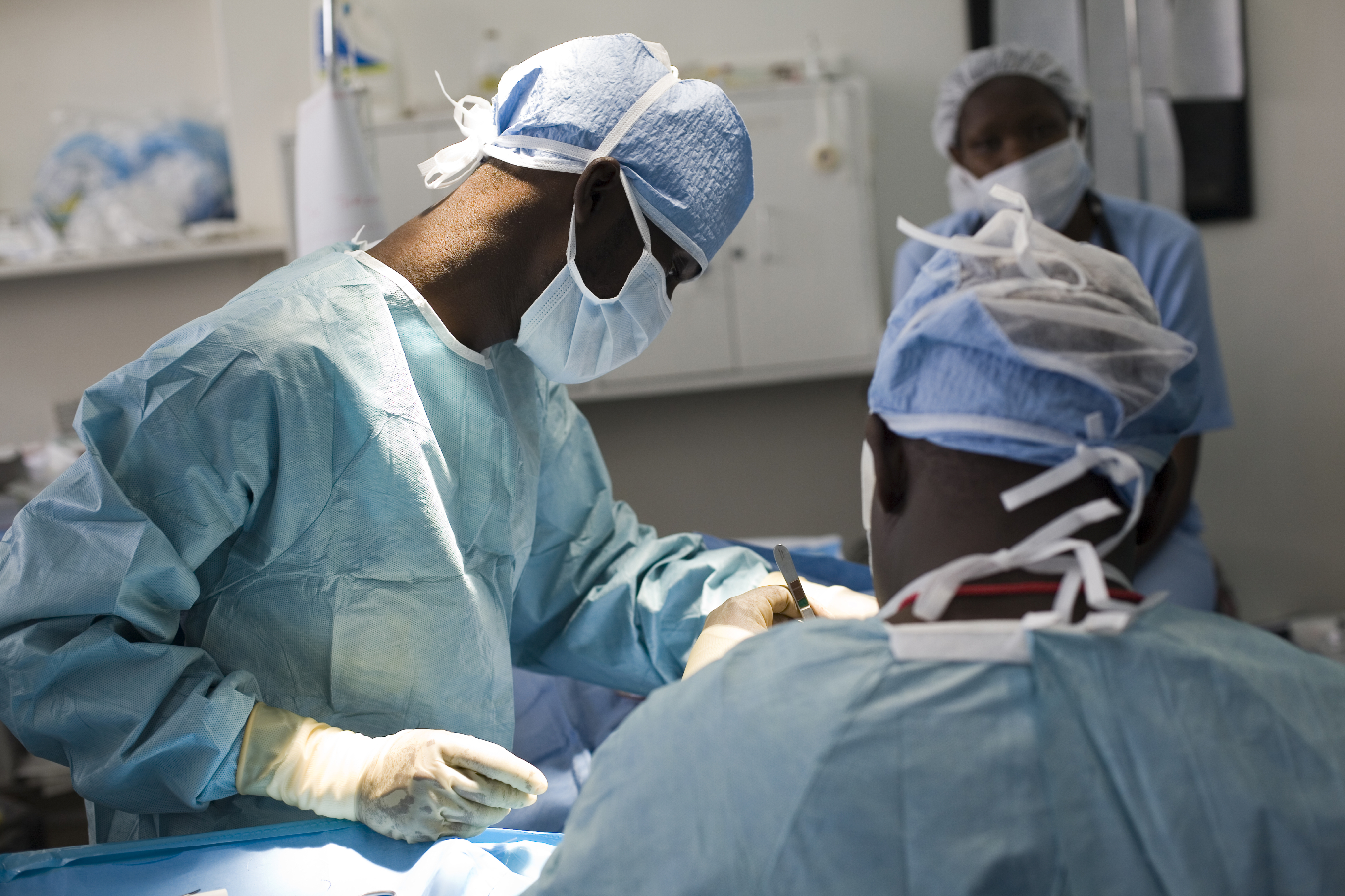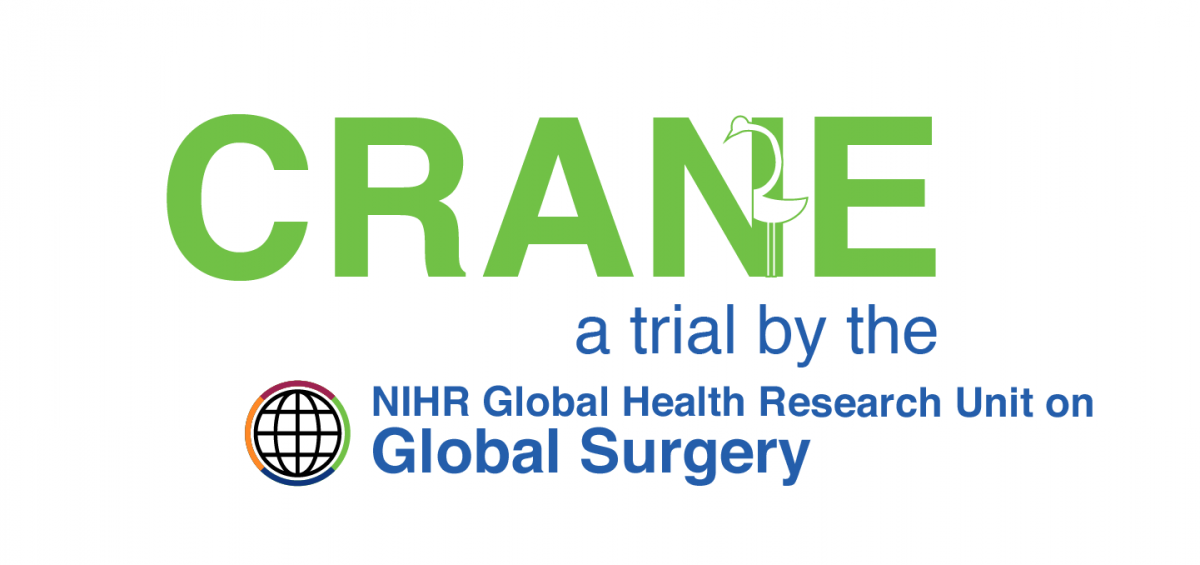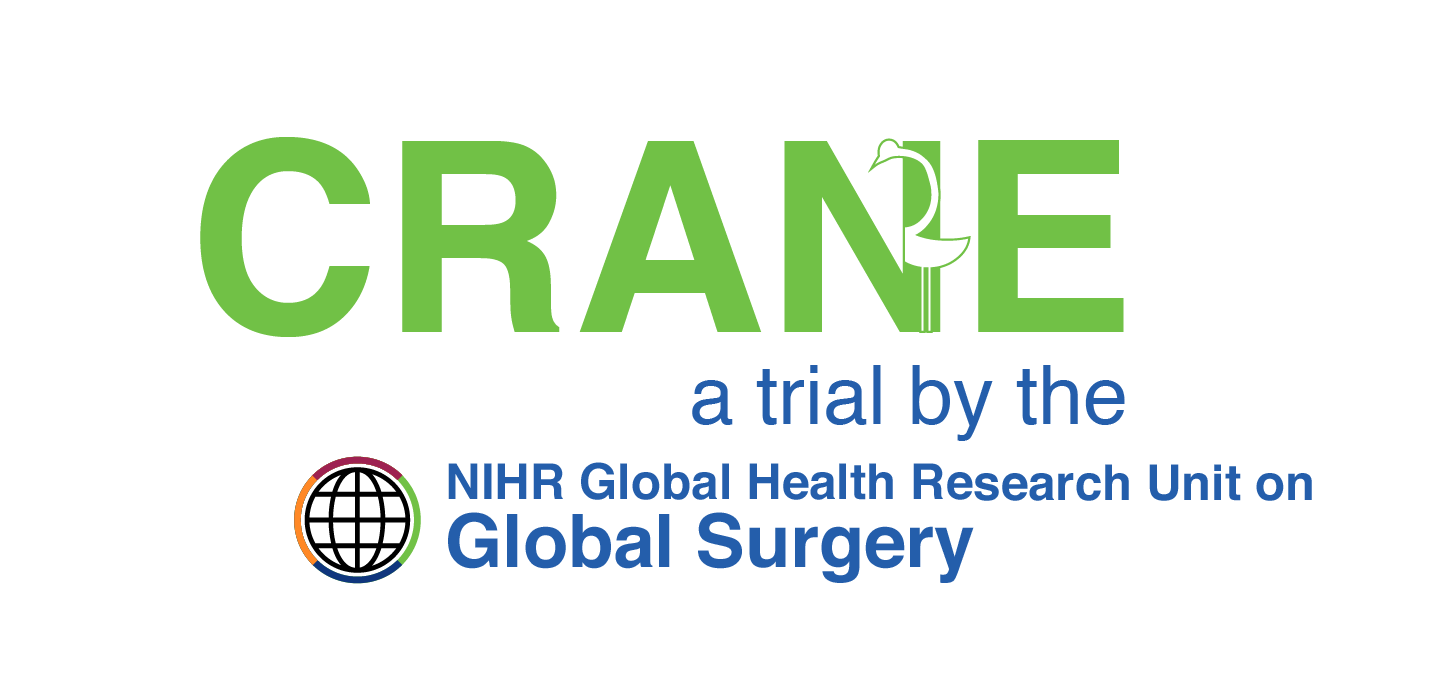The CRANE Trial
CRANE: Feasibility of a cluster randomised trial of a nutritional intervention to improve outcomes after cancer surgery in low-income countries.




Following GlobalSurg 3, our international cohort study examining surgical outcomes for cancer patients, CRANE will be the first high quality global trial of a nutritional supplement given to malnourished patients prior to cancer surgery in low & middle income countries.
It is estimated that two-thirds of patients undergoing cancer surgery in low- and middle-income countries (LMICs) are malnourished. Increasingly it is being recognised that boosting the health of patients before surgery can greatly improve the chances of a successful operation. The CRANE trial will be investigating the benefit of intensively treating patients in LMICs with nutritional supplements prior to surgery.
CRANE is a feasibility study funded by the UK Medical Research Council.
Aims & Objectives
Objective 1: to identify and validate a nutritional screening tool relevant to patients in LMICs
Objective 2: to identify a low cost sustainable nutritional intervention for cancer surgery patients in LMICs
Objective 3: to test the feasibility of patient recruitment, retention & nutritionational supplement acceptability
Collaborating Countries
Crane is feasibility study being conducted in 5 partner countries
Trial Summary
For many types of cancer, high quality surgery is the only cure. This is particularly true in low-income countries where treatments such as chemotherapy or radiotherapy may not be available.
Malnutrition is a major public health issue in LMICs, with as many as two-thirds of hospitalised adults being malnourished. Cancer often causes extreme weight loss and, in many countries, this occurs on top of pre-existing malnutrition. Malnutrition is associated with higher post-operative mortality and morbidity, including longer length of inpatient stay and increased healthcare-associated costs.
It has been demonstrated that perioperative nutrition in patients undergoing gastrointestinal cancer surgery can halve postoperative complications, reduce post-operative stay and significantly impact on surgery-associated mortality. Nutritional supplementation provided at the time of surgery in LMICs could provide a low cost and sustainable intervention, requiring minimal specialist training and equipment to administer.
GlobalSurg 3 is providing data that will allow us to establish the relationship between malnutrition and surgical outcomes in a way that hasn’t been possible previously, but to find a solution to the problem we need a large scale trial testing nutritional interventions prior to surgery.
The CRANE trial is a feasibility study designed to bridge the gap between the GlobalSurg 3 observational study and a large scale clinical trial.
Systematic reviews and guided focus groups will be used to establish a suitable malnutrition screening tool and to identifying the most appropriate nutritional intervention to deliver, including patient acceptability.
A pilot trial will investigate whether patient recruitment and retention is achievable in a trial of this nature, and test methods of data collection.
Establishing all of these things in a feasibility study will inform the design of a large scale cluster randomised controlled trial in the future.
Adults undergoing surgery for gastrointestinal and breast cancer at 20 hospital in Ghana, Pakistan, Philippines and Zambia
CRANE is a cluster randomised trial; it is randomised at the level of the institution, rather than at patient level.
The CRANE trial is supported by the NIHR Global Health Unit on Global Surgery, The Medical Research Council, and The Universities of Edinburgh, Birmingham and Manchester





